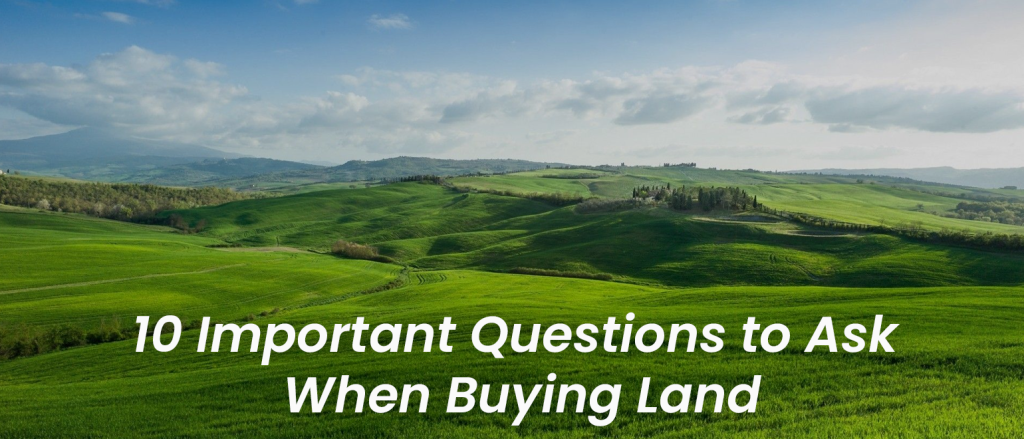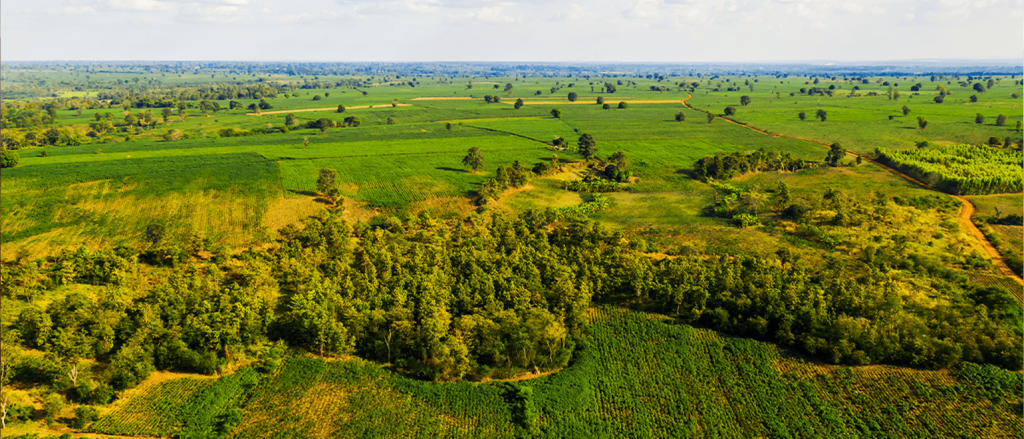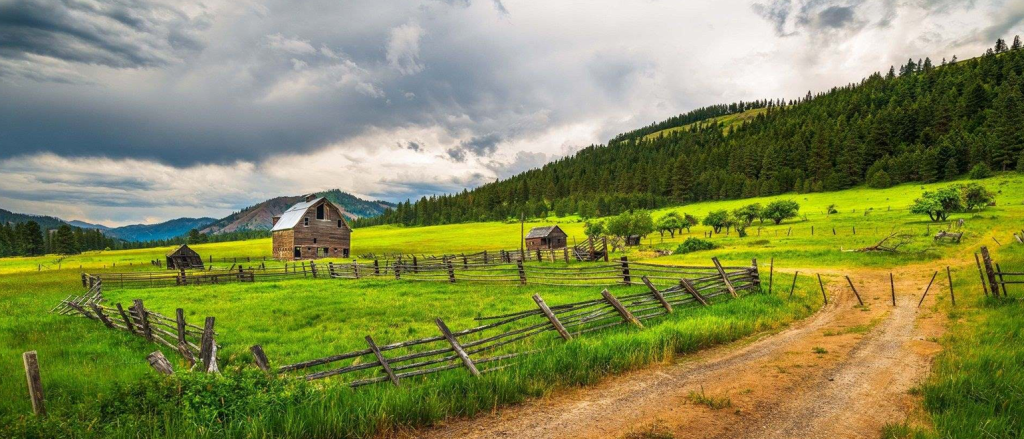
Here’s a helpful checklist of key questions to ask when buying land from a seller or their representative.
These questions are designed to give you a clearer picture of the property and its potential but keep in mind that this guide is meant to serve as a general overview rather than a comprehensive list. Each parcel of land is unique, and real estate transactions can vary depending on location, intended use, and the specific needs of the buyer and seller. It’s always wise to consult with a land expert or real estate professional to ensure you have the right information before making a purchase.
Key Questions to Ask When Buying Land

Asking the right questions when buying land is crucial to uncovering any potential issues and ensuring your investment aligns with your goals. Here are ten important questions that can help you make a well-informed decision and avoid unforeseen challenges.
1. What are the access rights on the property?
One of the first things you need to establish when buying land is whether you have legal access to it. Does the land connect to a public road, or is it only accessible through a private easement? It’s essential to clarify who owns the roads leading to the property and if there are any access restrictions. Legal access is vital, as it could impact everything from your ability to reach the land to future development plans.
2. Are utilities like electricity, sewage, and water available on the land?
Having basic utilities in place, such as water, electricity, and sewage systems, is crucial when purchasing land. If these services are not already connected, you will need to factor in the cost and time of installing them. Some properties might require septic systems or wells, which can be expensive and require ongoing maintenance. Understanding the utility infrastructure helps you plan for costs and determine if the land is suitable for your intended use.
3. Has the land been recently surveyed, and how are the boundary lines marked?

A recent survey of the land is essential to confirm property boundaries and avoid potential disputes. Ask for a survey map and verify that the boundaries are clearly marked with visible markers. A professional survey ensures you know the exact dimensions of the land you’re purchasing and helps avoid future legal issues with neighboring properties.
4. Who are the neighboring property owners, and are there any boundary disputes?
Knowing who owns the neighboring properties can be an important part of your due diligence. Ask if there are any current or past disputes about property lines, and consult local records to confirm this information. You’ll want to ensure you’re not stepping into a legal dispute or potential conflict with nearby landowners that could affect your enjoyment or use of the land.
5. Do any mineral rights, such as timber or water rights, come with the property?
Mineral rights can be a valuable addition to a land purchase. These rights might include access to timber, water, or even natural gas resources beneath the land. Clarifying whether these rights conveyed through the sale could affect the land’s overall value and your future income potential. Without mineral rights, another party may have the authority to extract resources from your property, even after you’ve bought it.
6. Are there existing easements on the property that could affect its use?

An easement allows another party to use part of your land for a specific purpose, such as utility lines, access to a neighboring property, or conservation efforts. While some easements may not interfere with your plans, others might restrict your ability to develop or use the land in certain ways. It’s important to review all existing easements to understand how they could impact your ownership and future plans.
7. Are there any known environmental issues with the property?
Before finalizing a land purchase, it’s essential to inquire about any environmental concerns. Some properties may have contamination issues, endangered species habitats, or wetlands that restrict development. You’ll also want to verify if the property is in a flood zone or has been subject to government environmental assessments. Environmental problems can lead to costly remediation efforts and limit how you use the land.
8. How is the property zoned, and what are the permitted uses?
Zoning regulations determine the permitted uses for a piece of land, whether for commercial, residential, agricultural, or other purposes. Understanding the zoning restrictions is crucial before making a purchase to ensure that your intended use of the land is permitted. Additionally, inquire about any special exceptions or rezoning possibilities that may apply to the property.
9. Is there a Homeowners Association (HOA), and what restrictions are in place?
If the land is located in a community governed by a Homeowners Association (HOA), there may be specific rules and restrictions regarding what you can build or how you can use the property. HOAs often have guidelines around home design, fencing, landscaping, and more. It’s important to review any HOA rules to ensure they align with your vision for the property and won’t hinder your plans.
10. Are there any development proposals for nearby properties?
Future development plans in the surrounding area can greatly influence the value and attractiveness of your property. Ask the seller or check with the local government to see if there are any upcoming commercial, residential, or industrial developments nearby. While new development can increase land values, it could also lead to noise, traffic, or other changes that may not align with your goals.
By addressing these key questions, you’ll be better prepared to make an informed decision when buying land.
Each property is unique, and asking the right questions can help you avoid costly mistakes while maximizing the value and potential of your investment.
When navigating the complexities of purchasing land, working with experienced professionals can make all the difference. LandLeader connects buyers with trusted land brokers, providing expert guidance and access to premium properties.
By partnering with LandLeader, you can ensure that every aspect of your land purchase is handled with care and precision.